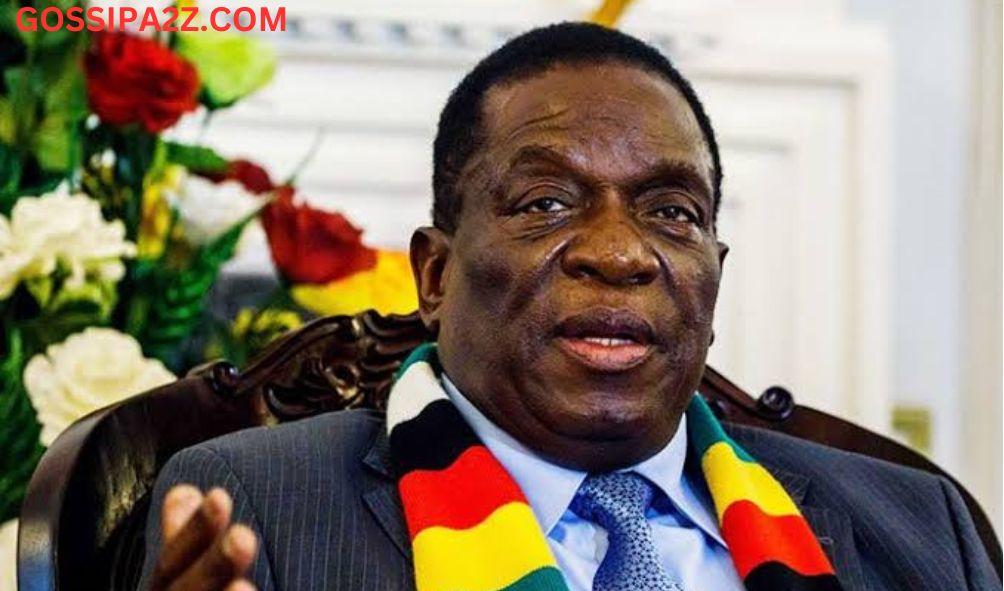Zimbabwe’s Mnangagwa Secures Controversial Second Term
Saturday, election officials announced that Zimbabwe’s President Emmerson Mnangagwa won a second term in office, but the opposition rejected the results of a vote that international observers said fell short of democratic standards.
According to the official results announced by the Zimbabwe Electoral Commission (ZEC), Mnangagwa, 80, received 52.6 percent of the vote, compared to Nelson Chamisa, 45, who received 44 percent.
“Mnangagwa Emmerson Dambudzo of the ZANU-PF party has been declared to have been duly elected president of the Republic of Zimbabwe,” ZEC chairwoman Justice Chigumba told journalists.
On Wednesday and Thursday, Zimbabweans went to the polls to elect the president and legislature amid delays that prompted opposition claims of corruption and voter suppression.
A few supporters of the governing party applauded the presidential election results at the news conference venue.
However, Promise Mkwananzi, a spokesperson for Chamisa’s Citizens Coalition for Change (CCC), stated that the party did not approve the “false” final tally.
“We cannot accept the results,” he told AFP, adding that the party’s next steps would be announced shortly.
The election was viewed as a measure of support for Mnangagwa’s ZANU-PF, whose 43-year rule has been marred by a sluggish economy and accusations of authoritarianism.
Friday, foreign election observers reported that the elections did not adhere to regional and international standards.
The term ‘Rigging’
Observer missions from the European Union, Commonwealth, and the sixteen-nation Southern African Development Community (SADC) raised several concerns, including the prohibition of opposition rallies, problems with the voters’ register, biased state media coverage, and voter intimidation.
Rejoice Ngwenya, a political analyst, remarked, “The elections were marred by irregularities, which angered the Zimbabwean people.”
“The CCC has sufficient grounds to challenge the outcome in court.”
According to ZEC’s Chigumba, Mnangagwa received more than 2,3 million ballots, while Chamisa received more than 1,9 million.
With more than fifty percent of the vote, the president avoided a runoff. The voter turnout was 69%.
Mnangagwa, nicknamed “The Crocodile” for his ruthlessness, seized power in 2017 following a rebellion that ousted the late dictator Robert Mugabe.
A year later, he narrowly defeated Chamisa for the first time in an election that the opposition leader criticized as fraudulent and that was followed by a violent crackdown.
ALSO READ: Kenya’s Amina Mohamed To Head Commonwealth Observers for Zimbabwe
This week, voting in several critical districts, including the opposition stronghold Harare, was forced to extend into an unprecedented second day due to printing delays.
Chamisa criticized the delays as “a clear instance of voter suppression, a classic example of Stone Age… rigging.”
Rhodesia, formerly a British colony ruled by whites and renamed Zimbabwe, gained independence in 1980 after a lengthy guerrilla conflict and was renamed.
Under Mugabe, however, the nascent democracy descended into authoritarianism and economic decline, with hyperinflation wiping out savings and discouraging investment.
The opposition hoped to capitalize on widespread discontent with corruption, high inflation, unemployment, and entrenched poverty.
Nonetheless, ZANU-PF was also declared the victor in the parliamentary election, securing 136 of the 210 available seats under the first-past-the-post system, compared to the CCC’s 73. A candidate’s demise prevented the assignment of one seat.
Another 60 are allocated for women appointed through a proportional representation party-list system.
Zimbabwe’s Mnangagwa Secures Controversial Second Term
